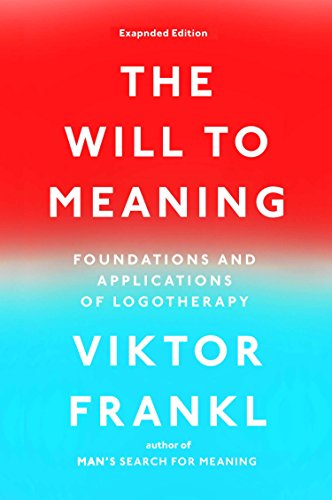The Will to Meaning: Foundations and Applications of Logotherapy Link to heading
Summary Link to heading
“The Will to Meaning” by Viktor E. Frankl is an exploration of logotherapy, which is a form of existential analysis that emphasizes the search for life’s meaning as the central human motivational force. The book delves into the philosophical and psychological underpinnings of logotherapy, discussing its application in various therapeutic settings. Frankl argues that the primary drive in human beings is not the pursuit of pleasure or power, but the quest for meaning, which can be found in every aspect of life, even in suffering.
Frankl offers insights into how individuals can find purpose and meaning in their lives, drawing on his experiences as a Holocaust survivor. Throughout the book, he articulates the methodological approach of logotherapy, differentiating it from other schools of psychotherapy by highlighting its focus on the future, one’s responsibilities, and the spiritual dimensions of existence.
Review Link to heading
“The Will to Meaning” is a compelling exploration of the search for meaning, written by one of the 20th century’s most influential psychiatrists and philosophers. The book’s strength lies in Frankl’s ability to interweave his personal experiences with broader psychological and existential questions, offering both theoretical insights and practical applications. One of the notable strengths is its accessibility, as Frankl writes in a manner that is both profound and approachable. However, some readers might find the dense philosophical discussions challenging without prior background in existential philosophy.
Overall, the book has had a significant impact on both psychology and philosophy, particularly in how individuals approach the concepts of purpose and meaning in life.
Key Takeaways Link to heading
- The central human drive is the search for meaning, not pleasure or power.
- Meaning can be found in all aspects of life, including suffering and hardship.
- Logotherapy focuses on the future and one’s responsibilities, offering a unique approach to psychotherapy.
- The spiritual dimension of human life is essential to understanding overall psychological well-being.
- Individuals can find meaning through creative work, experiences, and attitudinal change toward unavoidable suffering.
Recommendation Link to heading
“The Will to Meaning” is highly recommended for psychologists, therapists, and anyone interested in existential philosophy and the human quest for meaning. It is particularly useful for those who wish to understand how to integrate a sense of purpose into therapeutic practice or personal development. Additionally, those facing existential crises or searching for deeper meaning in their lives may find Frankl’s insights particularly illuminating and valuable.
